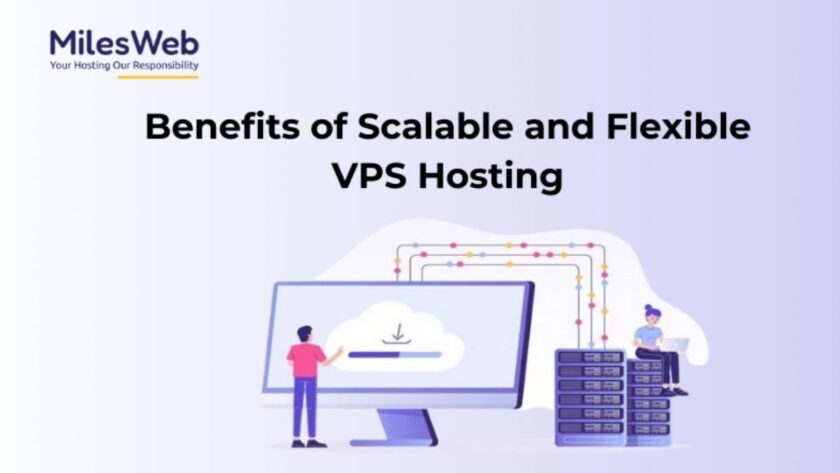More than ever before, eCommerce businesses are thriving today in a digitally-dominated economy. Of course, millions of transactions happen every day and businesses need a web hosting service that will back them up with high performance, stability and reliability. When the cloud server cost is considered, it is affordable and helps the businesses to scale easily.
Cloud server with cPanel has played a pivotal role in helping eCommerce businesses transition to the cloud server and now they can easily accommodate fluctuating traffic, manage accounts, securely handle their customers’ sensitive data and provide a fast browsing experience. This blog delves into the benefits of cloud hosting and why it ensures smooth operations of eCommerce by providing scalability, flexibility and robust security features.
Know All About Cloud Hosting
Cloud web hosting services are the best means to host websites and applications with complete scalability, and flexibility. In this, cloud servers have more storage, bandwidth, and resources or others to give the maximum efficiency. Cloud web hosting offers several service models, including Infrastructure as a Service (IaaS), Platform as a Service (PaaS), and Software as a Service (SaaS).
IaaS provides users 1 with fundamental computing resources like virtual machines, storage, and networking. PaaS offers a platform for developing, running, and managing applications without the need to worry about underlying infrastructure. SaaS delivers software applications over the internet, enabling users to access and utilize them through a web browser.
Suggested Read: Benefits of Scalable and Flexible VPS Hosting
Cloud Hosting Services Benefits for Enterprises
1. The Scalability Advantage
Scalability is one of the largest significant benefits of cloud hosting. Ecommerce sites have variable traffic and so this is timed accordingly. During sales, events, holidays, or launches of products. With sudden traffic spikes, conventional web hosting services can get bogged down and their performance can even be slow or not even be available.
Resources computing power can be scaled up or down as needed at will by businesses, which pay only for what they use. It not only reduces cost but also provides freedom to expand without restriction of infrastructure. Scaling away the worries of different overloads is what scalability does to give cloud hosting the confidence level to expand your eCommerce operation.
2. Enhanced Security for Online Stores
In the electronic world, eCommerce businesses are more than responsible for protecting the reputation and information of the customers who patronize them. The data is protected from the hands of third parties by cloud hosting service providers who provide advanced security features including SSL certificates, DDoS protection and regular data backups.
More specifically, cloud hosting supports data protection compliance regulations so businesses are compliant with the industry standards. A company can wash away its worries of data breaches with automated security updates and a way to monitor threats, giving its time and attention to sales and controlling customer interactions.
3. Improved Speed and Performance
Website speed affects churn rate and customer retention rate. And slow-loading pages can harm your sales and your user experience. Unlike most hosting providers, cloud hosting utilizes Content Delivery Networks (CDNs), load balancing and more to improve website performance. CDNs spread out content over several computers in order to provide equal loading time experience to users, regardless of where they might be in the world.
Moreover, cloud web hosting service is also endowed with high uptime rates, which means that e-commerce websites remain unavailable through 24×7. This translates to good customer satisfaction and great sales opportunities.
4. Cost-Effectiveness and Resource Optimization
Pay as you Go pricing model is followed by most of the cloud web hosting services, to facilitate avoiding spending huge amounts upfront in physical servers. Since this is a small and medium sized eCommerce business looking for cost efficient solutions in this era, this model is useful.
Cloud hosting takes advantage of virtualization, therefore maximizing resource utilization, thereby minimizing wastage and operational cost. They allocate resources dynamically in business units easily—computing power, storage, bandwidth.
5. Flexibility and Easy Management
Managing an e-commerce platform involves frequent updates, product additions, and system upgrades. Cloud hosting offers flexible infrastructure and centralized management tools, simplifying administrative tasks. Businesses can deploy updates or make changes in real-time without affecting website performance.
With user-friendly dashboards and APIs, cloud hosting solutions enable seamless integration with third-party applications, payment gateways, and CRM systems. This flexibility supports smooth operations and enhances the overall shopping experience for customers.
6. Excellent for Flexibility
Ecommerce means frequent updates, product addition, and system upgrade. Using cloud hosting the infrastructure is flexible while the centralized tools make administrative tasks easier. That means that businesses can push out updates or do things in real time without slowing down their website.
Cloud hosting solutions have user friendly dashboards and APIs for easy integration with other third party applications, payment gateways, CRMs and any system where you may need your data hosted online. This flexibility aids smooth operations and improves the whole customer shopping experience.
Are you want to get implementation help, or modify or extend the functionality?
A Tutorialswebsite Expert can do it for you.
Conclusion
Scalability, security and performance adaptability offered by cloud hosting has fundamentally changed the face of e-commerce operations. It helps businesses survive very quickly when there are sudden changes in the demands in the market without the slightest any impact on the user experience.
With the landscape of e-commerce growing every day, the move to host on the cloud is no longer a luxury, but a necessity. This makes it possible to remove the infrastructure headache from businesses, allowing them to take their mind off of infrastructure and focus on growth and innovation.

Nidhi Maurya is a professional blogger and Content Writer who writes about a variety of topics related to his niche, including Web Tech, SEO, and digital marketing.






[…] Suggested Read: Ensuring Seamless E-commerce Operations with Cloud Hosting […]